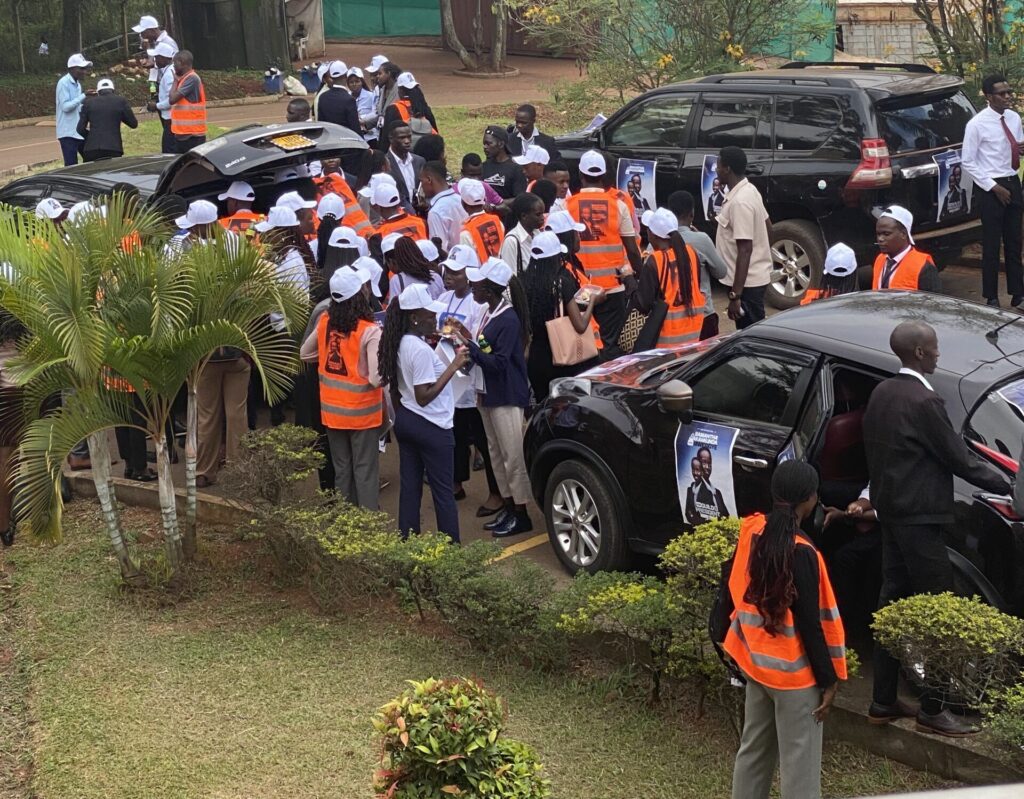By Michael Ainomugisha
The student leadership elections at Uganda Christian University (UCU) are a unique process and have become a model that other institutions are starting to emulate. One of the defining features of UCU’s elections is the absence of political parties. This allows candidates to focus on issues within the university rather than being swayed by external influences.
Another notable aspect is the absence of public address (PA) systems during on-campus campaigns. This ensures that the learning environment is not disrupted by campaign noise, allowing students to go about their academic activities without interference.
However, despite the apparent success of this system over the years, issues have begun to surface, particularly accusations of bias directed at the Electoral Commission (EC). Concerns have been raised about the vetting process, the strict guidelines, and allegations of favoritism towards candidates who seem to violate those same rules.
Every November, UCU students participate in a democratic process that mirrors the broader political systems outside campus. The ongoing Guild elections give us a chance to see democracy in action—but sometimes, we also see its shortcomings. While UCU’s electoral system has its strengths, such as ensuring strict voting procedures and striving for fairness, recent events have called the transparency and clarity of the process into question.
A significant moment of controversy arose with allegations against Guild Presidential candidate Samantha Mwesigye. According to a letter from Gerald Abura who called himself a concerned student, Mwesigye’s campaign violated guideline number four by involving a non-student, MC Enrico, who is well known for his involvement in campaigns at Makerere University Business School.
Enrico’s presence at Mwesigye’s rally was a direct breach of the rules, which prohibit collaboration with non-registered students. This raised concerns about whether the EC was applying its rules consistently.
After watching videos online, I conducted a fact-check to confirm whether the events indeed took place on university premises, and they did. The rally launch occurred at the former School of Journalism, Media and Communication, and Words Of Hope Building, with several participants who were not UCU students.
Following these events, the EC stated that it held a disciplinary hearing on November 13, 2024, and cleared Mwesigye of any wrongdoing, allowing her to continue her campaign. However, the situation took a confusing turn when Mwesigye reportedly said that she had not attended any meeting with the EC on that day.
She is reported to have said that she met with the Director of Student Affairs (DOSA) the day before and was instructed to hold her future rallies off-campus. This inconsistency between Mwesigye’s account and the EC’s statement raises serious questions about the commission’s transparency and communication.
At its heart, democracy is built on fairness, clarity, and equal opportunity. Yet, the lack of clear communication from the EC—whether regarding the scheduling of hearings, enforcement of campaign guidelines, or the overall electoral process—has left many students feeling both confused and frustrated.
Circulation of videos showing Mwesigye holding rallies on campus, despite being directed to do otherwise, only adds to the growing perception that there is a lack of coordination among the bodies overseeing the election.
This points to a deeper problem: the EC needs to improve its organisation and transparency. While UCU’s double-voting system may appear to be a step in the right direction for selecting the best candidates, any process that seems disorganized or contradictory can ultimately undermine the democracy it seeks to protect. Rules and guidelines exist to ensure fairness, but when those rules are broken or inconsistently applied, trust in the system erodes.
It’s important to acknowledge that no electoral process is perfect, especially in a university setting where both the candidates and electoral officials are learning. Mistakes are bound to happen. However, how these mistakes are handled and communicated to the students is what maintains the integrity of the election.
As the election progresses, it is essential that the EC strengthens its commitment to transparency and fairness.
Communication must be timely, clear, and consistent, and all candidates should be treated equally under the same rules. Only then can UCU ensure that its democratic process truly reflects the values of fairness, integrity, and respect for all students.
If these aspects are improved, UCU Guild elections can become an even more effective platform for student leadership, (something they have gradually failed to accomplish), ensuring that we elect the crème de la crème of candidates in a genuinely democratic manner.
I call it like I see it.


